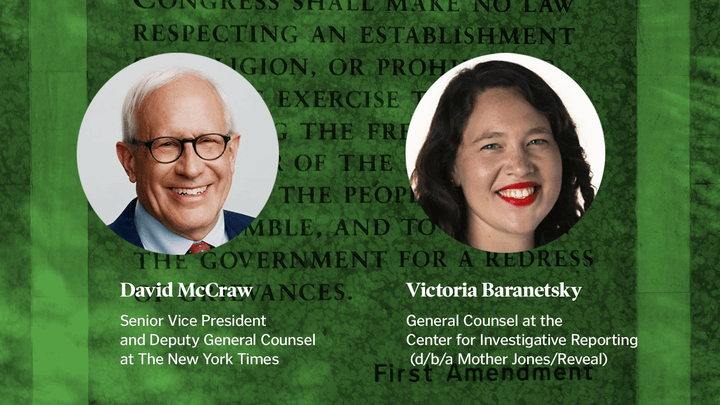For most of 2020, I have written a Sunday column for the Tampa Bay Times. It appears on the back page of the Floridian section, which features stories on travel, books and culture. Most of my columns and stories appear under the heading “Bright Spots,” although some pieces, such as reflections on the Vietnam War dead, are quite serious.
My preference is to offer pieces that are whimsical, humorous, offbeat, and, on occasion, consoling and inspirational. I’m learning a lot. As a writing teacher, each story is like a workshop, delivering surprising lessons about purpose, craft and audience.
I have eased into a role. There are great reporters covering the pandemic, the economic collapse, elections and social unrest. They are the journalistic equivalent of first responders, helping the nation through its emergencies. As a colleague, I offer my admiration. As a citizen, I offer my gratitude. I could not do what they are doing.
But I am doing my thing. From the response of readers, I have come to understand its value.
Some years ago, I wrote a story about the night watchman at the Poynter Institute. His name was Tommy Carden. He had a beautiful Irish tenor voice. He liked betting on football games. He knew everyone’s names and was a beloved figure.
It took time to learn that he had quit his high school class in Ohio in 1943, enlisted in the Army, joined the invasion into France, liberated Buchenwald concentration camp, and contracted a social disease in Marseilles. When he returned to America, his life was just as colorful. In his 60s he was reunited with his high school sweetheart, whose picture he carried in his wallet all those years.
[the_ad id=”667826″]
I interviewed him over many hours and wrote a long draft of a story that eventually would run in two parts in what was then the St. Petersburg Times. With the encouragement of editor Neil Brown, now president at Poynter, I revised the story as an “as-told-to” narrative, rendering it in Tommy’s voice.
What I lacked as someone born three years after the end of the war was a view into American culture during the war. By 1945, television had not made its way into daily American life. The best window into that war was Life Magazine.
My main character, Tommy, fought in the Battle of the Bulge, which extended from the last months of 1944 into 1945 when Allied forces finally defeated the Germans. In a collectible store in Atlanta, I found dozens of copies of Life from that period and read through them all. I came away with two conflicting impressions:
- Almost every corner of every page had some reference to the war effort. There were long stories with many photographs about the progress of the war. But even in advertisements, there were images of soldiers, efforts on the homefront and romanticized visions of American life — or what the soldiers were supposedly fighting for.
- Few of the cover images of Life Magazine made reference to the war. Instead, there were photos of athletes, movie stars and prominent cultural figures.
Editors of Life would later admit that Life was a loyal propagandist of the American cause. That did not mean lying or faking. But it meant not revealing too morbid a picture of the war to those back home. One editor told me that no country would support any war effort if they could see what was really happening.
I don’t see myself as a propagandist for the war effort against COVID-19. But I do see my efforts in a third prong of responsible coverage. The first prong is to report the facts, especially those that emphasize urgency and the need for citizens to take action. The second prong is to avoid exaggerated coverage so not to induce panic, which would make things worse. The third prong does not ignore the dark shadows of 2020. It means to make them more tolerable, offering an ounce of delight, consolation and inspiration.
[the_ad id=”667872″]
Here are a few things I am learning:
- The more global, the more local. Many more will die before the pandemic subsides. While national and global effects and efforts need coverage, readers still gravitate to things happening in their own communities and neighborhoods.
- The more disruptive, the more ordinary. The words “normal” or “new normal” don’t carry much weight. What I see instead I might call a “new appreciation” of common pleasures and experiences. Suddenly sitting on the porch watching the squirrels gather acorns feels like something new and worth writing about.
- Seniors and boomers read newspapers. I’m 72 years old and have become something of a Baby Boomer whisperer. I don’t see much evidence of loyal readers among the young, but my essays on why the Lone Ranger would want us to wear a mask, or about the passing of Little Richard or Sean Connery, and what those celebrities meant to us, or about the experience of getting the polio vaccine — all these speak to a generation that has read the news for a long time and has not yet given up the habit. Women in their 80s seem to think I’m cute and funny, an insight I would not submit to fact-checkers.
- At times news is a conversation. An old model of news sees the journalist as a practical expert who “delivers” knowledge to the eyes, ears and minds of the audience. An evolving model hopes the reader is more active. The internet offers the opportunity — beyond letters to the editor — to respond to the author. We know by now that the streams of commentary from readers can become so toxic that they offer a disincentive to engage. Without any elaborate plan, I have employed these strategies: First, I end almost every column with a question to the reader: “What’s your favorite Christmas movie?” Or “What have I left out?” I include my email address, rclark@poynter.org. I don’t receive a flood of messages, maybe 20 or so per week. Their quality makes up for quantity. Readers are grateful, sincere and charming. Their anecdotes are at times better than the ones in my column. Only two messages over nine months might be regarded as “negative.” In one, a woman thought I made fun of my wife too often. “Cut it out,” she said. That made my wife laugh. The other suggested that I had too much high fructose corn syrup in my diet. I answer every message.
- Good news creates good karma. I don’t want to jinx myself, but it seems a miracle that the internet trolls have not been interested enough in my work to show themselves. I have not avoided politics or the culture wars. Instead, I have made them background. The result is the warmth of appreciation, a sense that writers and readers can be part of a productive community.
I changed my status at the Poynter Institute about three years ago, going from a salaried employee of 39 years to a contract worker, getting modest compensation for teaching and writing. When the pandemic kicked in, my family agreed that we could help both the Institute and the Tampa Bay Times by donating our services. I don’t like the idea of writers writing for free, and I made sure that my work at the newspaper was not costing anyone a job. I’m not the kind of person who can work with the poor, the homeless, the hungry. I lack that gift.
But I have come to believe that writing in the public interest is a form of service, too. I plan to keep at it, at least until the pandemic runs its course.
[the_ad id=”667878″]







